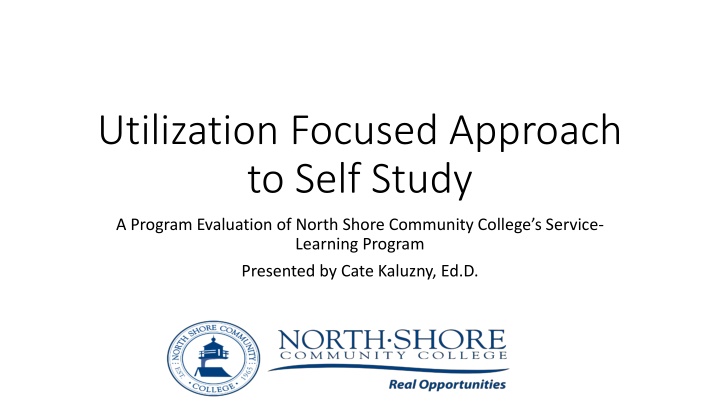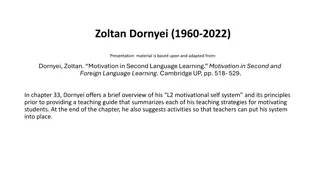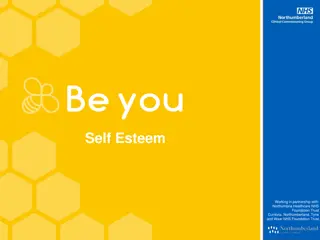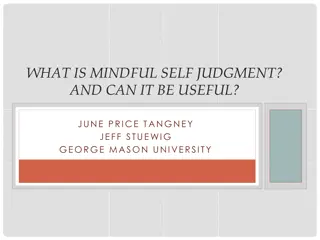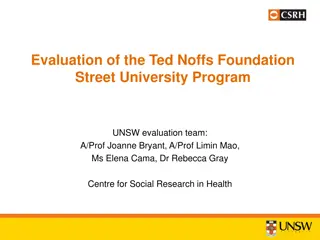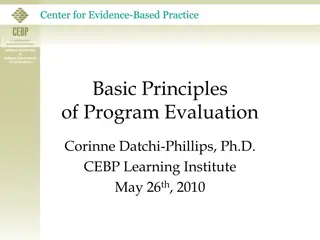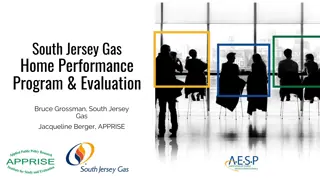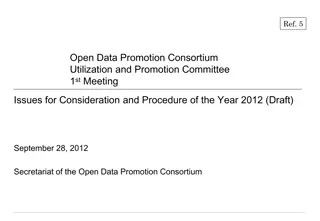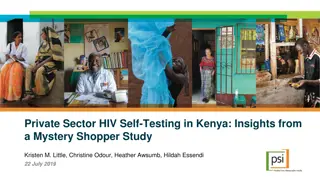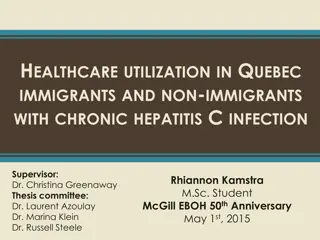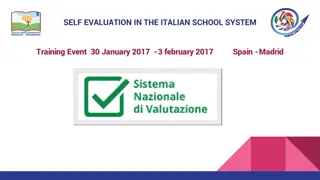Utilization Focused Approach to Self Study: Evaluation of NSCC Service-Learning Program
A program evaluation of North Shore Community College's Service-Learning Program is presented through research questions on student perceptions, community partner services, and faculty motivations. Students find satisfaction in giving back, but face challenges like commuting and paperwork. Community partners highlight student commitment, while faculty value active learning and community involvement. Factors influencing faculty involvement and persistence are explored, shedding light on the motivation behind participation in Service-Learning programs.
Download Presentation

Please find below an Image/Link to download the presentation.
The content on the website is provided AS IS for your information and personal use only. It may not be sold, licensed, or shared on other websites without obtaining consent from the author.If you encounter any issues during the download, it is possible that the publisher has removed the file from their server.
You are allowed to download the files provided on this website for personal or commercial use, subject to the condition that they are used lawfully. All files are the property of their respective owners.
The content on the website is provided AS IS for your information and personal use only. It may not be sold, licensed, or shared on other websites without obtaining consent from the author.
E N D
Presentation Transcript
Utilization Focused Approach to Self Study A Program Evaluation of North Shore Community College s Service- Learning Program Presented by Cate Kaluzny, Ed.D.
Research questions How do NSCC students perceive their service-learning experience? What are the programs and services offered by the community partner organizations? What are their policies and regulations related to service- learning? What are their perceptions regarding students services? What are their expectations of service-learning students? What factors motivate faculty members to become involved in the Service-Learning Program? What factors encourage them to persist?
Student Many students indicated that the most-satisfying aspects of their service-learning experience were: giving back to the community, satisfaction with their service-learning projects, interacting with new people, learning new things, and hands-on experience. However, a few expressed concerns about commuting to the site, scheduling with agencies, paperwork associated with their service, coordinating with their team members, and communicating with the clients.
Community Partner In-depth Semi-Structured Interviews Twenty Community Partners Risk and Safety, Orientations, Background Checks. Community Partner Survey Strengths: Willingness and Commitment of Students to Serve Challenges: Communication
Faculty Motivation and Persistence In reference to the question of why they got involved with service-learning, faculty members responded that they valued active learning and experiential education. Also, they indicated that the relevance to course materials, their personal involvement in community service and enjoyment of working with students in co- curricular settings as the common influencing factors for being involved in the Service-Learning Program.
Why did you get involved in Service- Learning?
Who encouraged you to get involved in Service-Learning?
If YES, what ensures your continued participation in Service-Learning?
Closing the Loop Maintain Strong Ties with Service-Learning Faculty (seek them out to assist in recruiting new service- learning faculty) Create More Recognition for Service-Learning Faculty o Put Letters of Recognition in Faculty Files o Reward Years of Participation as Service-Learning Faculty o Expand Celebrations o Conduct Qualitative Study of Faculty Perceptions of Rewards and Recognition
Ongoing Assessment Activities Student Satisfaction Survey Participation in Regional Study of Community Partners Evaluation of Community Partner by Student Evaluation of Student by Community Partner Community Partner Satisfaction Survey Faculty Focus Groups and Surveys
Acknowledgement and Thanks Saradha Ramesh, Ph.D., M.D. Former NSCC ASSESSMENT COORDINATOR
